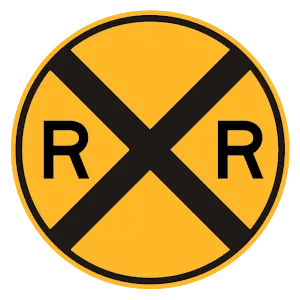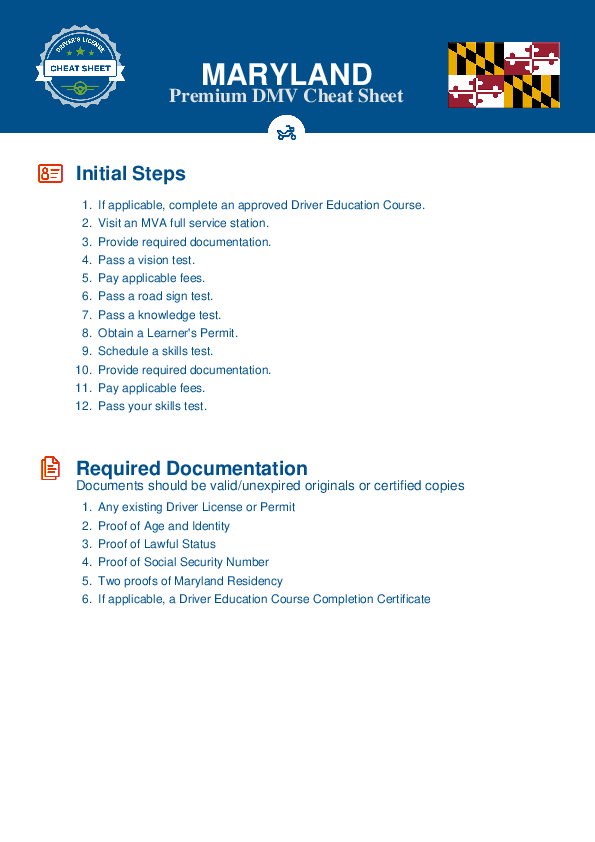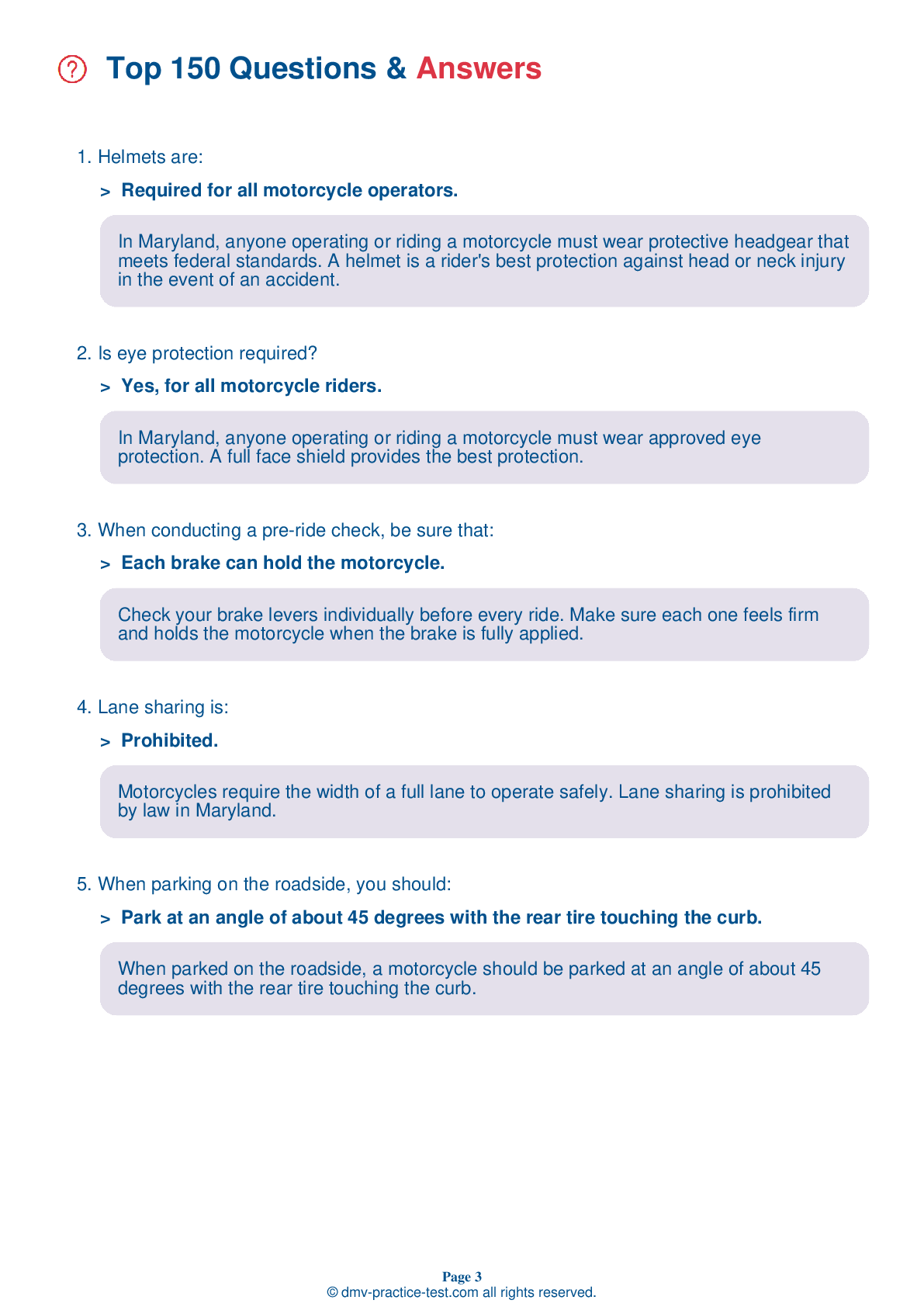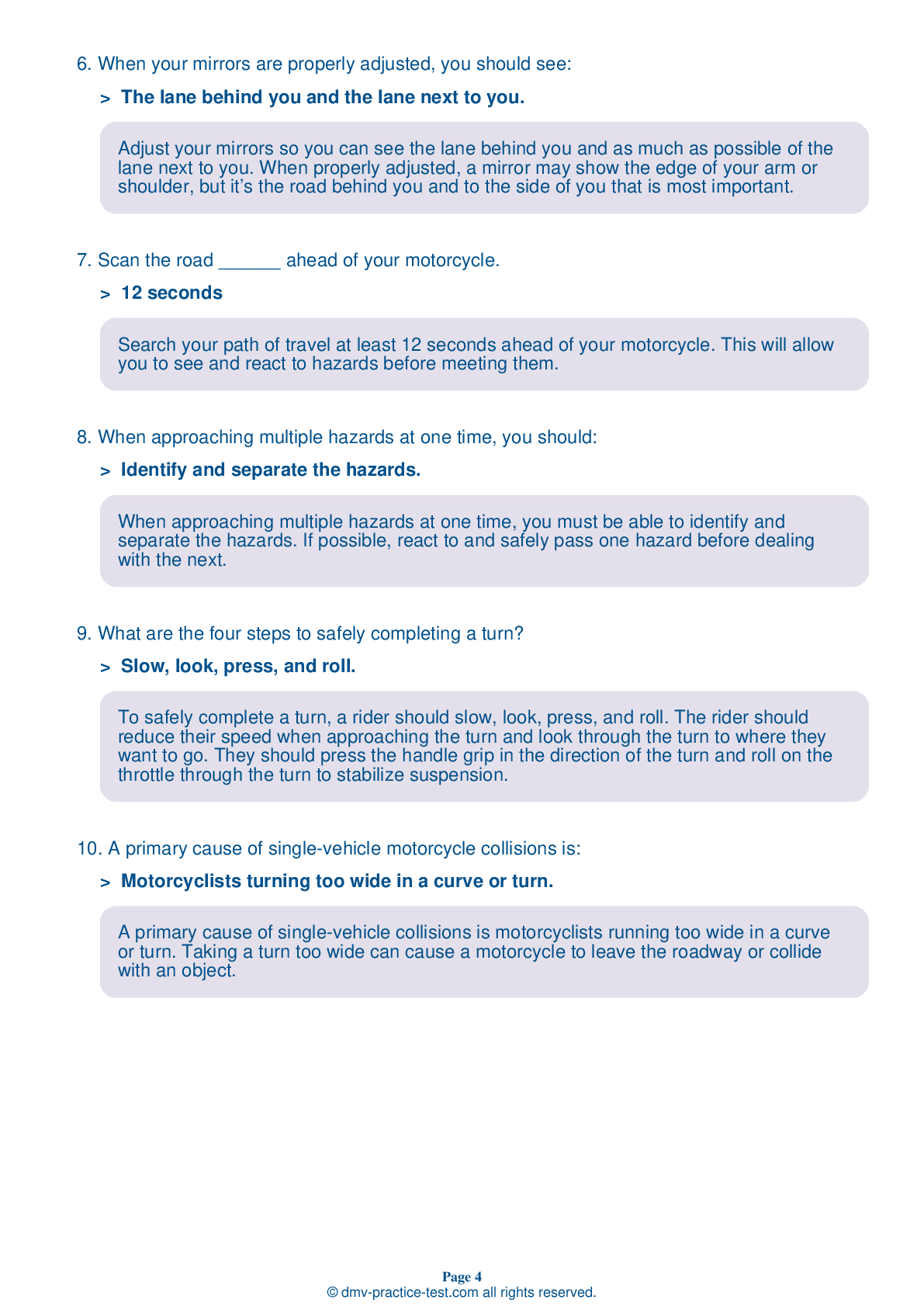Motorcycle Test | License MD 2026 | FREE Online Practice! #6
Take this FREE motorcycle test (license in MD 2026) to check your knowledge of the road rules. To improve your results, download a motorcycle handbook online, study theory, and practice for free on our website. Still worried about how to get a motorcycle license in Maryland in 2026? Check our website for more sample tests, train as much as possible, and boost your grades!
1 . When stopping behind a vehicle, you should:
Stay well behind the vehicle in front of you, even if you are both stopped. The vehicle could back up unexpectedly, or you may need space to get out of the way of another vehicle bearing down on you from behind.
2 . Helmets are:
In Maryland, anyone operating or riding a motorcycle must wear protective headgear that meets federal standards. A helmet is a rider's best protection against head or neck injury in the event of an accident.
3 . This sign is a warning that you are approaching:

This sign indicates that you are approaching a railroad crossing.
4 . Round signs indicate:
Round signs warn road users about upcoming railroad crossing areas. Use extra caution when approaching a railroad crossing.
5 . If you are riding behind a car, you should:
When riding directly behind a car, it is usually safest to ride in the center portion of your lane. If you are riding in the center of the lane, you are most likely to be visible in the rearview mirror of the vehicle ahead. Most drivers check their rearview mirror more frequently than they check their side mirrors.
6 . When approaching a blind intersection, riders should:
When approaching a blind intersection that is controlled by a stop line or stop sign, you must first stop where indicated. You may then edge forward and stop again just short of where the cross traffic lane meets your lane. From that position, lean your body forward and look around buildings, parked cars, or bushes to see if anything is approaching. Make sure your front wheel stays out of the crossroad while you are looking.
See the exact questions that will be on the 2026 Maryland DMV exam.
99.2% of people who use the cheat sheet pass the FIRST TIME
Jeneen was tired of paying $5/gallon. She got herself a scooter that required the motorcycle license. She studyed the motorcycle test cheat sheet and passed her test the next day!
Christopher tells us how he knew nothing prior to obtaining the motorcycle study guide, and he only got one question wrong because he clicked on the wrong answer by mistake.



